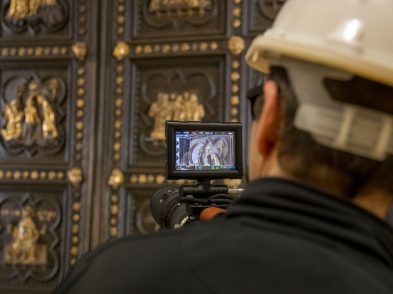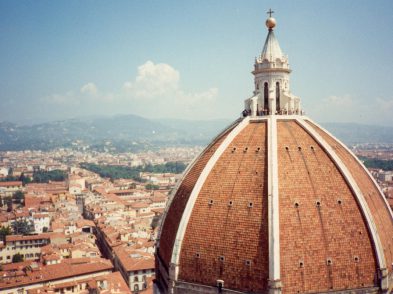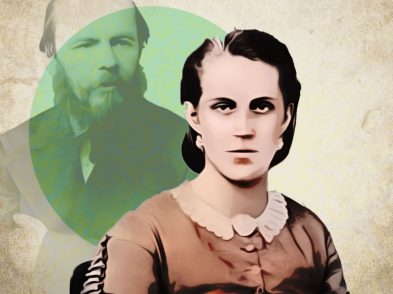Magical is the word that best suits the experience I had while creating my most recent film, The Innocents of Florence: The Quest to Save 600,000 Children. It took me on a path of new discoveries and extended my understanding of Florentine culture, for which I am deeply grateful as it informs my way of being in the world.
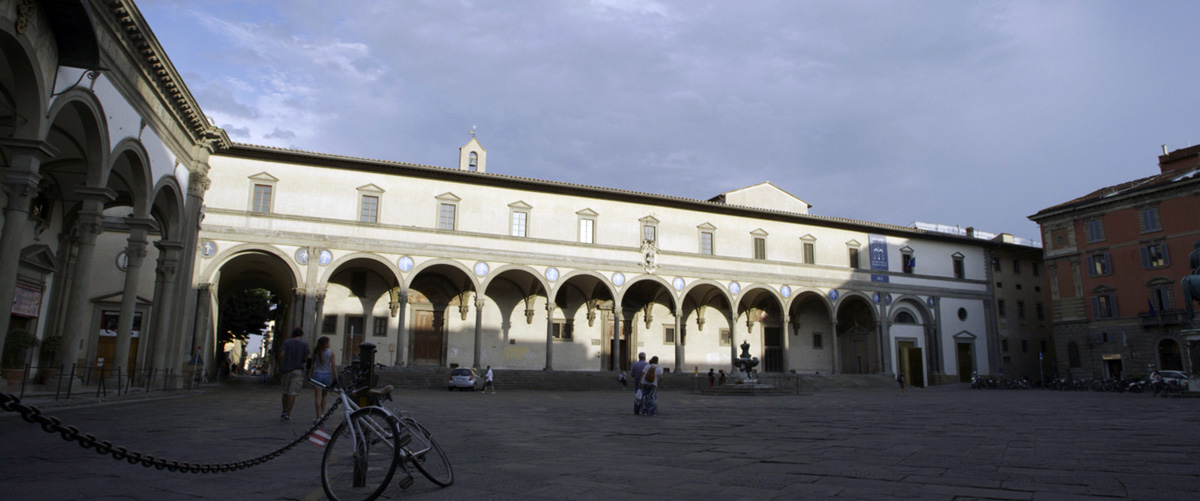
Istituto degli Innocenti
The process partly revealed the essence of the humanist movement in Florence: to deepen our humanity and invest the time to consider it. This film project, the painting on which it is centred and the people involved provided me with a sense of community, compassion and the realization that “getting things right” and “actually doing it” was something that Florence has always done well (albeit often at a pace few can comprehend in modern times).
The film follows the conservation of The Mother of the Innocents painting, which—in contemporary terms—is a 15th-century logo crafted to represent a brand. It was a banner made to express a new idea, to be carried in processions by the merchants of the silk guild. The new idea was to create a building and shelter, whose purpose was to unify charitable services and care for Florence’s newest and neediest citizens: abandoned infants. As the artwork was restored, the incredible story of women’s history in the city emerged.
This year marks the 600th anniversary of when the first stone was laid in the construction of the iconic Innocenti foundling hospital, whose architectural beauty in piazza della Santissima Annunziata was accomplished under the guidance of Filippo Brunelleschi. For those who have heard about it, a mere mention of the Innocenti causes a change of expression on a person’s face as they consider the weight of what happened there down the centuries, an awareness of the sometimes disheartening and seemingly hopeless struggle to preserve life and save children’s lives. The story of the Innocenti softens and transforms people, and the example that it sets for us as a society is relevant to this moment in history since beauty is timeless. The Innocenti Institute is essentially a beautiful idea.
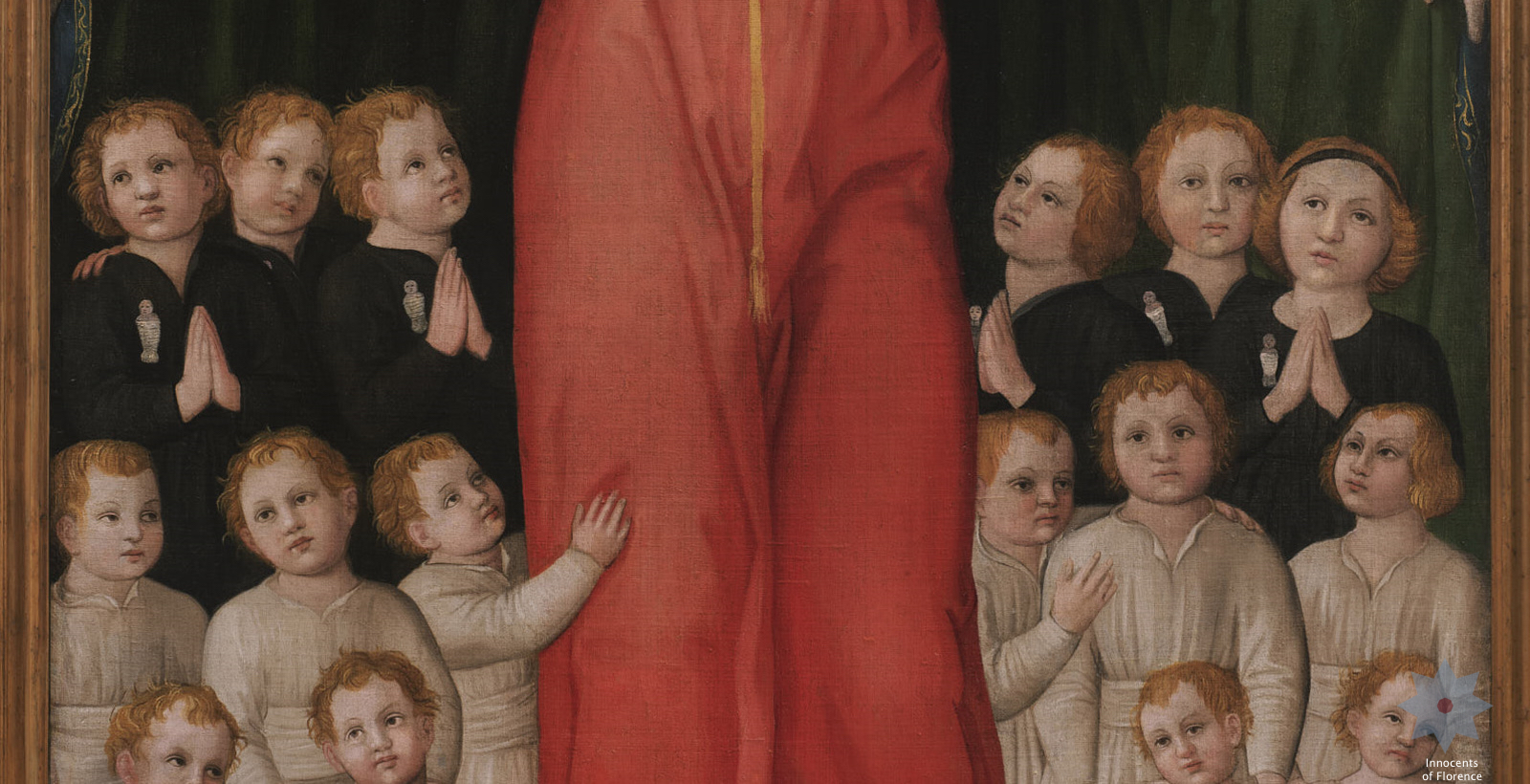
Detail, “The Mother of the Innocents”
The painting created to represent the institution evokes a maternal nature and the strength and purpose of a mother as protector. The power and beauty of a mother’s love is difficult to express as it involves the intimate, deep and personal life-affirming relationship between mamma and child. The Innocenti strives to convey those feelings as a public entity through founding a casa madre, a loving shelter for the city’s children and begin the noble task of their essential care. Even with the odds stacked against them, something beautiful was established, beginning with the building itself, a hospital dedicated to children.
You might ask what beauty has to do with any of this. Why was it important that a beautiful loggia act as the frontage of a hospital building? My reply: How else might they have expressed such a beautiful and noble idea? From the outset, there’s this underlying feeling that—regardless of what you create—beauty has a better shot at success. Perhaps this is why so many things in Florence endure, and not just the Istituto degli Innocenti. The undeniable beauty of what has been created validates the institute in some way and beauty commands the respect required to carry it forward.
In one of my previous films, Don Alessandro, a longtime priest at Florence Cathedral commented, “La bellezza non stanca mai.” In English, we can translate his words as “Beauty never tires” or “Beauty never makes you tired”. Infinity occurs when you stare at something beautiful. You are transported to some other time and space and become lost in that seemingly endless moment as everything else disappears. Infinitude is different for everyone.
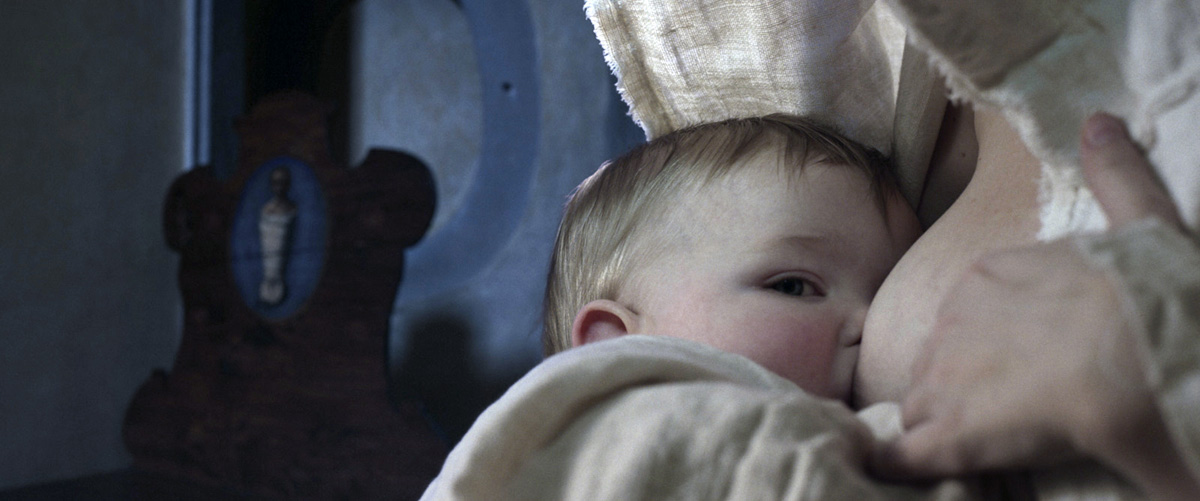
Breastfeeding
Florence was made to be beautiful, partly because the belief was that by creating beautiful surroundings people would be more rational and peaceful, and that this would form a better society. The hope was (and still is) that the attitude towards and insistence on creating beauty—and surrounding oneself with beauty—would impart a kindness and compassion in the human condition from which we can become easily separated with the distractions in our modern world. This, paired with the importance of considering our own humanity and defining what that means in our society, is the essence of what the Innocenti can teach us if we are willing to place ourselves on the path of beauty.
In creating something beautiful a deeper consideration is required. We must look at things from a deeper place in our hearts, urge wisdom and compassion from that place, and then display the profound joys that lie within the beauty of our own humanity. These are the feelings that stir something in the collective human heart.
It’s much more of a challenge to create something beautiful because we rarely dive deep enough into our hearts to get to the seed of what connects us all. To our global benefit, the community of people who created the Innocents took the time to look deeply into their own hearts to create a situation where the beauty of a place could help nourish a beautiful concept, which still stands—and thrives—after 600 years of heartfelt history.
COME TO THE PREMIERE!
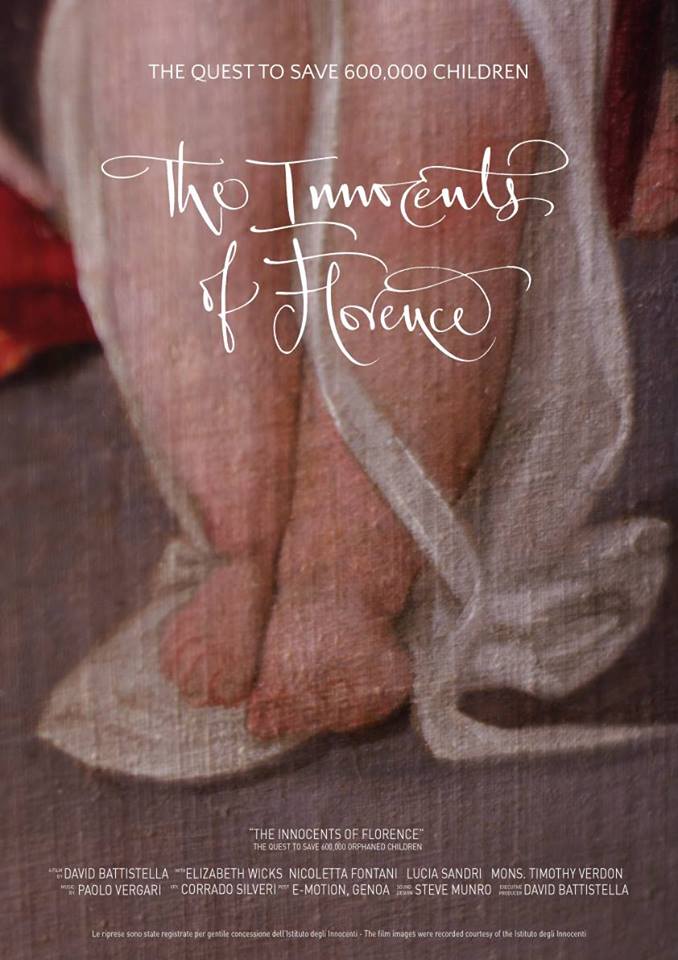
The Innocents of Florence: The Quest to Save 600,000 Children by David Battistella will premiere in English at Florence’s Cinema La Compagnia (via Camillo Cavour, 50/R, Florence) at 9pm on May 17.
The 90-minute feature length documentary details a present-day restoration of a 600-year-old painting, which takes two art conservators on a journey uncovering the city’s forgotten children and the women who saved them. A second English screening will take place on May 24 at 3pm.
Buy tickets (8 euro): theflr.net/ticketsinnocentsfilm
www.innocentimovie.com


